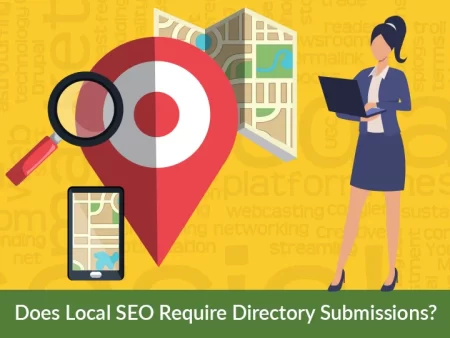 The main goal of local SEO is to establish your business’ visibility in Google’s top three organic search results and on the Local Map Pack itself. There are many factors at work here to determine where you’ll be listed. Some of these include local presence, relevance, and authority. One way of doing so is through directory submissions. Before you start making these submissions, there are a few things you need to know.
The main goal of local SEO is to establish your business’ visibility in Google’s top three organic search results and on the Local Map Pack itself. There are many factors at work here to determine where you’ll be listed. Some of these include local presence, relevance, and authority. One way of doing so is through directory submissions. Before you start making these submissions, there are a few things you need to know.
Local Presence And Consistency
For your business to rank well with local SEO, you’ll need to prove that it exists in or provides services to that area. You can use your business’ website and its Google Business Profile (GBP) as proof.
Your Business Website
Your website should include your physical address. Make sure to tag this with local business schema so that it’s easier for Google to index and also does better with local SEO. It’s also important to incorporate geographic details in your title and heading tags. Additionally, you may wish to include a Google map for further validation.
Your Google Business Profile
Your GBP will reinforce the information and focus of your website and also help with local SEO. Your name, address, and phone number (NAP) must match what’s on your website. When choosing your service areas and categories, make sure they’re consistent and within close proximity of your location.
Local Relevance
To establish local relevance, you must ensure that both you and your content appear in the correct directories under the appropriate categories. There are three types of local directories that you may want to submit your listings to. These include:
- “Global” directories (e.g., Yelp, Yellow Pages) are those that offer local listings and reviews in almost every location throughout the world. Usually, these listings are free unless you want to use their advanced features.
- Paid listings require that you pay a fee to be listed in their directory. To determine if you should spend money here, you’ll want to conduct a search engines results page (SERP) test. Locally specific directories (e.g., directories offered by local Service Organizations / Chambers of Commerce) should only be considered if they can prove their value.
The SERP Test
The SERP test requires you to do some research regarding the primary keywords you want to be found for and then ask the directory if they’re able to provide you with stats regarding the organic traffic your paid listing will receive. Be wary of any directories that can’t provide you with such stats.
Pay attention to any directory that outperforms your GBP or website for keywords you want to target. These directories represent an opportunity for you to be found via the directory itself and also to gain authority by being listed there.
Although the SERP test requires time, it’s worthwhile to find those directories that pass this test and get your website listed on them. Of course, this will only pay off for you if the directory is visible and has relative local authority.
Local Authority
When your business is listed within local directories, especially those that have established their authority will help boost your authority and visibility. To identify how big of a boost you’ll receive, you should use the SERP test.
How Are Your Directory Listings?
Local directories still play an important part in the effectiveness of local SEO. There are a few different ways you can go about ensuring that you’re listed in the right places. One way is to contact us at the Local SEO Tampa Company in Tampa, FL. We’ll help you create a submission strategy that reflects your traffic and visibility goals, as well as your budget, so contact us today.
